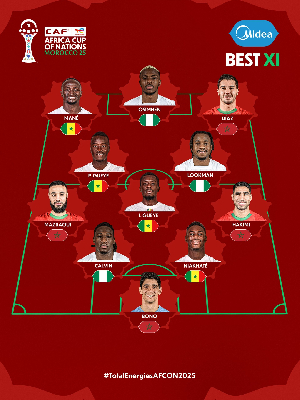The Federal Government has said more mining licences will be revoked as part of ongoing efforts to sanitise the solid minerals sector and protect investors from fraudsters.
The Director-General of the Mining Cadastre Office, an agency of the Federal Government, Obadiah Nkom, disclosed this on Thursday during a live conversation on X (formerly Twitter), themed “A deep dive into the Mining Cadastre Office: Driving transparency and order in Nigeria’s solid minerals sector.”
According to him, the clean-up exercise, which covers expired, speculative, and inactive titles, is necessary to make room for genuine investors and ensure compliance with the law.
Nkom disclosed that the agency had identified about 4,709 licences, including 1,400 expired titles, 2,338 refused applications, and 971 notifications of grant where applicants failed to pay, leading to an outright revocation by the Minister of Solid Minerals Development, Dele Alake.
Speaking during the live session over three hours, the DG stressed that the revocation was not punitive but part of a deliberate sanitisation process to weed out speculators who hoard licences without adding value to the economy. Nkom explained that the exercise had already boosted investor confidence in the sector.
He said, “When you talk about backlog, for now, the ministry has had reasons to clear or revoke close to 4,709 mineral licenses. There were implementations in terms of revoked expiring titles of up to 1,400 licenses. We have had reasons to refuse applications in the system, 2,338. We have had a mineral title notification of 971. Can you imagine 971 notifications of grants that were notified, but did not come to pay?
“There are even instances where some people have collected the grants, but they refuse to pay. So what do we do? So this cleaning exercise that we are doing is to be able to now create that space in the minefield for people. So, imagine having over 4,709 erased from our system by way of revocations implemented. It has sanitised our sector, and investors now know that if they are not going to be involved in exploration and value addition, there will be consequences.
“We are cautious. We follow the law. And this is why I repeat, we have had 100 per cent success in litigations because we are an agency compliant with the provisions of the Act. Where we are wrong, we are not shy away from trapping ourselves and doing the right thing. I would hope that at the end of the day, we will not have any risk by following the provisions of the Act.”
Recall that the minister in 2024 revoked 924 licenses over failure to pay statutory charges and fees due for the Federal Government through the Mining Cadastral Office, warning licensees yet to resume work on their mining projects to do so immediately.
The minister had at the time explained that one of the obstacles to the development of the sector was licence racketeering carried out by persons who obtained licences over Cadastral units that they knew had minerals of commercial value.
Last month, the minister also hinted at plans to revoke fresh dormant mining licences following the conclusion of an ongoing review process.
Continuing, the DG also raised alarm over the activities of impostors parading as staff or agents of the Mining Cadastre Office, warning that the government would now prosecute offenders in collaboration with security agencies.
He revealed that the office had made formal complaints to the Department of State Services and the Economic and Financial Crimes Commission to track and prosecute impersonators.
“We are going to bite, and bite hard. These impersonators deceive innocent investors by giving the impression that they are staff of the cadastre. They collect money and documents illegally, tarnishing the image of the sector,” Nkom said.
“We appreciate legitimate consultants and company representatives, but no one should impersonate us. The era of touts and fraudsters thriving around our offices is over.”
To further protect investors, Nkom said the MCO had integrated with the Corporate Affairs Commission’s real-time verification system to ensure that only duly registered companies could obtain mineral titles.
“The CAC has given us the API to instantly confirm, in real time, whether a company is legally registered. If not, the application cannot move forward. Beyond that, applicants must also present bank statements and letters to demonstrate financial capacity,” he explained.
He also clarified that holding a valid licence did not give operators the right to mine minerals outside the specific licence granted. “Mining beyond your licensed mineral automatically renders you an illegal miner. But the law makes provision for you to apply to add newly discovered minerals to your licence. It takes only a week or two. There is no excuse for illegality,” Nkom warned.
Despite the revocation exercise, Nkom noted that the number of mining companies operating in Nigeria had increased, with more foreign and local investors entering the sector.
“Government reforms are attracting more companies. Foreign investor interest is rising, while local small-scale operators are also organising themselves into cooperatives. Mining is no longer seen as just breaking stones; it is now big business,” he said.
He maintained that the reforms under the Tinubu administration and the Minister of Solid Minerals Development, Dr Dele Alake, were aimed at creating a transparent, accountable, and investor-friendly sector.
“We have 100 per cent success in litigations because we follow the law. That is why the courts uphold our actions. The mineral sector is no longer what it used to be. We are repositioning it for the growth of Nigeria,” Nkom said.
Nigeria is estimated to have over 44 different mineral resources spread across more than 500 locations in the country, ranging from gold, lithium, barite, limestone and coal, to gemstones and bitumen.
Despite this vast potential, the solid minerals sector has contributed less than 1 per cent to the nation’s Gross Domestic Product for decades, largely due to poor regulation, illegal mining, speculators hoarding licences, and a lack of investor confidence.
The Mining Cadastre Office was established under the Nigerian Minerals and Mining Act of 2007 as the sole agency responsible for the administration of mineral titles. It was created to ensure transparency, reduce multiple licensing, and eliminate discretionary allocation of mining rights that had previously led to corruption and disputes.
However, for years, thousands of inactive licences clogged the system, with some individuals hoarding dozens of titles without carrying out exploration or development. This not only deprived the government of revenue but also discouraged serious investors.
Since the appointment of Dr Dele Alake as Minister of Solid Minerals Development under President Bola Tinubu’s administration, the ministry has prioritised sanitising the sector, revoking dormant licences, enforcing compliance with the law, and cracking down on illegal mining.
Business News of Friday, 5 September 2025
Source: www.punchng.com













